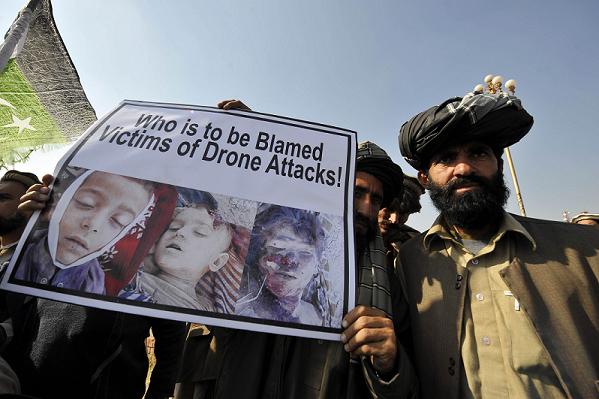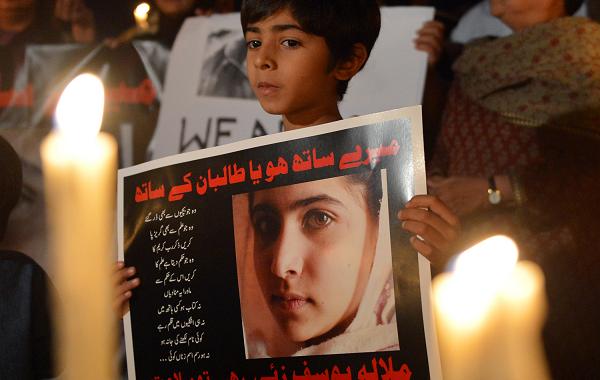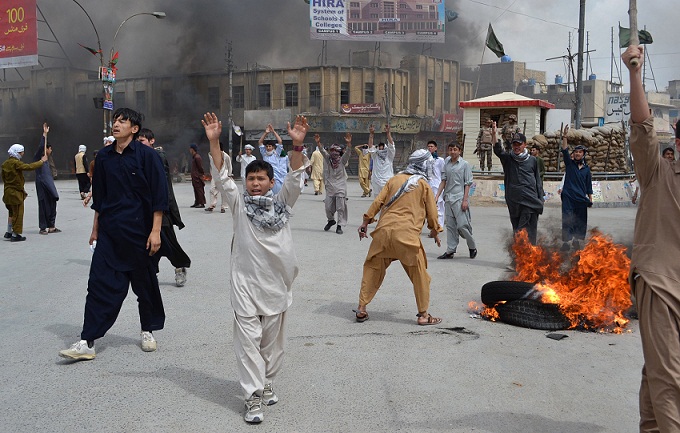
Pakistani tribesmen protest against US drone attacks in the Pakistani tribal region. © AFP/Getty Images
At tonight’s debate President Obama and Governor Romney will face questions for the last time before the Presidential Elections. Even as they speak and try to sell themselves to the American public, scores of unmanned aerial vehicles will be flying over the skies of northwestern Pakistan, their remote control operators sitting thousands of miles away, and the hundreds of thousands of villagers under their shadow cowering in fear for when they will spit out a missile and wreak destruction over the land that has been their home for centuries.
In the words of the recent report compiled by NYU and Stanford University:
“Drones hover twenty four hours a day over communities in northwest Pakistan striking homes, vehicles and public spaces their presence terrorizes men, women and children giving rise to anxiety and psychological trauma among civilian communities”
Even as the Presidential candidates sparred on October 11, 2012, President Obama had already authorized his 297th drone strike since taking office, it was the deadliest one in 2012, killing 17 people, the second strike in less than twenty four hours in the area. In the aftermath of the strike the Foreign Ministry of Pakistan said the strike was a “clear violation of international law and of Pakistani sovereignty”. As has been the case, for the hundreds of other strikes the objections made by Pakistan, a country against which the United States has not declared war, they were ignored.





 The euphoria of the revolutionary moment is wondrous — drawing out from despondency and delivering from despair, young and old, city dweller and peasant, all uniting in a collective that suddenly realizes its power.
The euphoria of the revolutionary moment is wondrous — drawing out from despondency and delivering from despair, young and old, city dweller and peasant, all uniting in a collective that suddenly realizes its power.

